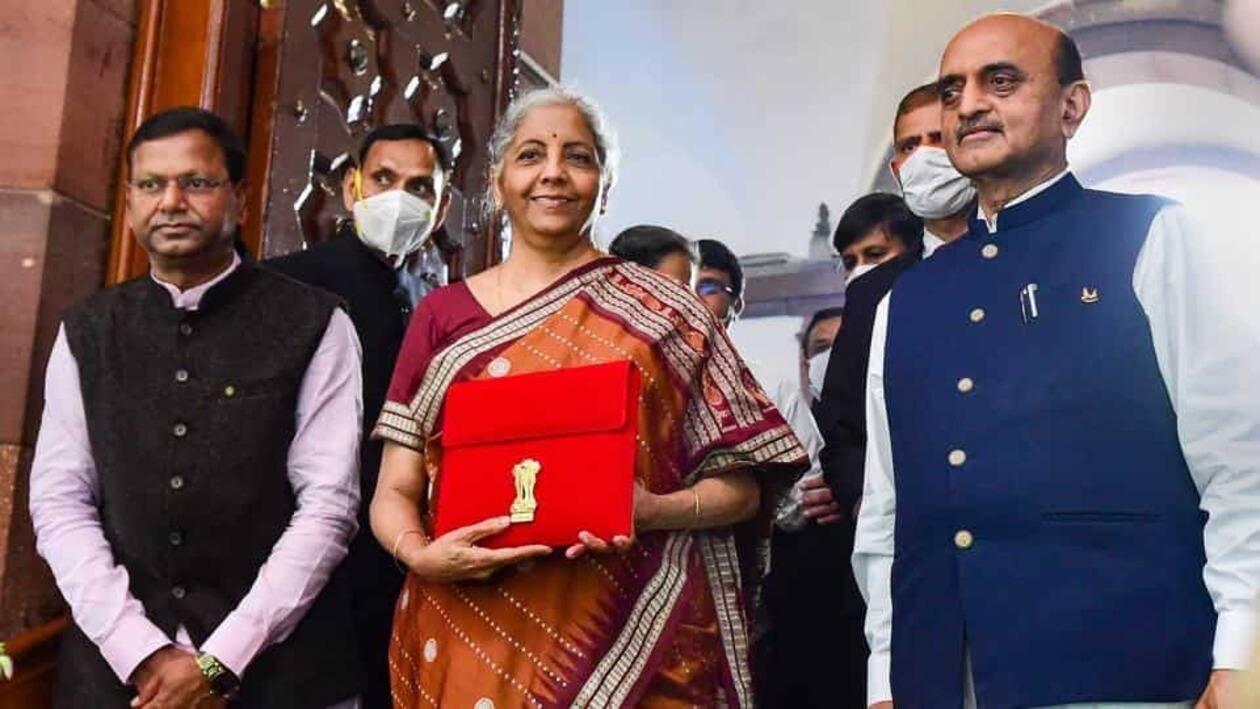Finance Minister Nirmala Sitharaman will present the Union Budget for the financial year 2023-2024 (FY24) on February 1, 2023.
Budget announcements are critical for the market since they shape the country's economic landscape. Announcements on taxes, Capex and economic policies have near- and long-term impacts on the stock market.
The Budget 2023 is expected to focus on infrastructure, manufacturing, agriculture and allied activities. There may also be a stronger focus on production-linked incentive schemes and more sectors may be brought under its ambit.
Economists and experts do not expect any significant change in the rules for direct taxes but some changes in capital gains tax may be on the cards.
The state of the economy
At this point, the Indian economy is the island of hope for the world. While the West is staring at a looming recession due to aggressive rate hikes, institutions like International Monetary Fund (IMF) and the World Bank are optimistic about India.
The World Bank has projected Indian economic growth at 6.9 percent for FY23, and it expects the growth rate will slow to 6.6 percent in the next financial year.
However, it stated that among the seven largest emerging-market and developing economies (EMDEs), India's economy is predicted to grow at the highest rate.
The IMF expects India's real GDP to grow at 6.8 percent in the current fiscal year, while in 2023–24 it anticipates growing at 6.1 percent.
According to global brokerage firm Credit Suisse, even though growth concerns will intensify globally in 2023, India’s growth trends may remain resilient given the country’s strong macroeconomic stability and well-controlled inflation.
However, there are some areas of concern, such as the trade deficit which may widen in case of a recession in the West. A slowdown in the West will hit exports which will distort the trade balance further and put pressure on the currency also.
Experts believe the government might meet its fiscal deficit aim of 6.4 percent of GDP in FY23 aided by robust tax revenue growth and higher than budgeted growth in nominal GDP.
Global financial firm Barclays expects India's fiscal deficit to hit the government’s target of 6.4 percent of GDP in FY22-23. For FY23-24, it believes the Budget will target a deficit of 5.8 percent of GDP, which implies a fiscal deficit of ₹17.7 trillion next fiscal year.
Key things for investors
In a broad sense, there are two factors that can cheer up the market. One, a cut in direct taxes, and two, a strong focus on infra projects and manufacturing projects.
A cut in direct taxes means more disposable income which will boost the economy and the market. Focus on infra and manufacturing projects will further energize the economy and will bring in more inflows from FDIs and FIIs.
But the concern this time is that the Budget 2023, in the run-up to the 2024 General Elections, may have a populist tinge.
Goldman Sachs says, "This would be the final full-year Budget under the current administration before the national elections in mid-2024, and comes at a time when the government is trying to weigh spending priorities, without compromising on fiscal prudence and the inflation target."
"The key things for investors to look out for, include: (a) the government’s commitment to the medium-term fiscal consolidation path, (b) weighing spending priorities on Capex, manufacturing incentives, subsidies and welfare, and (c) the supply of government bonds that the market may be able to absorb," said Goldman Sachs.
G Chokkalingam, Founder & Head of Research at Equinomics Research & Advisory expects the Budget to focus on welfare schemes because 2024 is an election year.
However, Chokkalingam also believes the Budget would focus significantly on the manufacturing sector in two specific areas: one, on labour-intensive manufacturing (like textiles) as the unemployment level remains slightly elevated; and secondly, on manufacturing import substitutes as the growing trade deficit is a major concern now.
Announcements on taxes, as always, will be in focus on investors.
The government is expected to make a beginning in bringing in uniform tax (capital gains tax) structures on all comparable asset classes. It may also widen tax incentives for exporters along with incentives for producers of import substitutes," said Chokkalingam.
It is unlikely that the Budget will directly benefit investors. However, a less populist Budget with a strong focus on growth will ensure that India's economic advancement remains firm.
"I do not expect any direct benefit to investors. However, major initiatives to boost the manufacturing sector and reduce trade deficits could bring some optimism to the stock markets which have not seen any upward movements since 2021 September levels. The Sensex has been languishing around 60,000 since September 2021," Chokkalingam said.
Disclaimer: The views and recommendations given in this article are those of individual analysts and broking firms. These do not represent the views of MintGenie.
